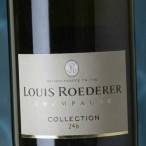Wine Offers
HK$ 251.78
HK$ 201.42
HK$ 347.94
HK$ 313.14
HK$ 347.94
HK$ 313.14
HK$ 391.81
HK$ 352.63
HK$ 401.62
HK$ 361.45
HK$ 595.79
HK$ 536.22

































